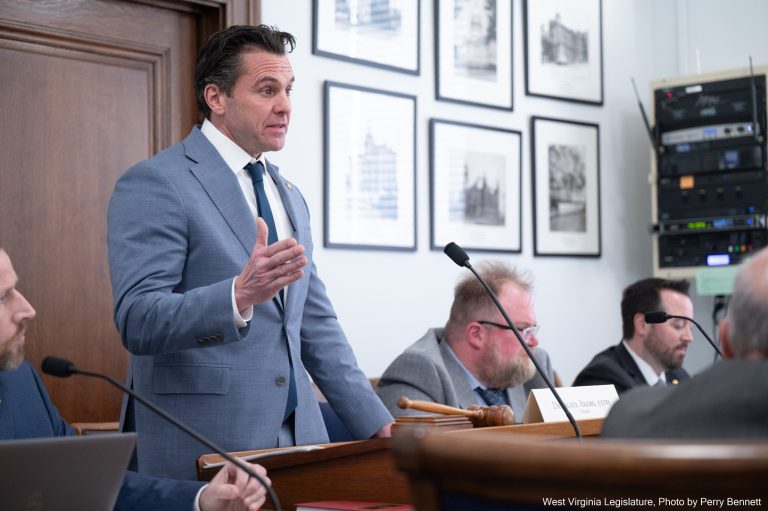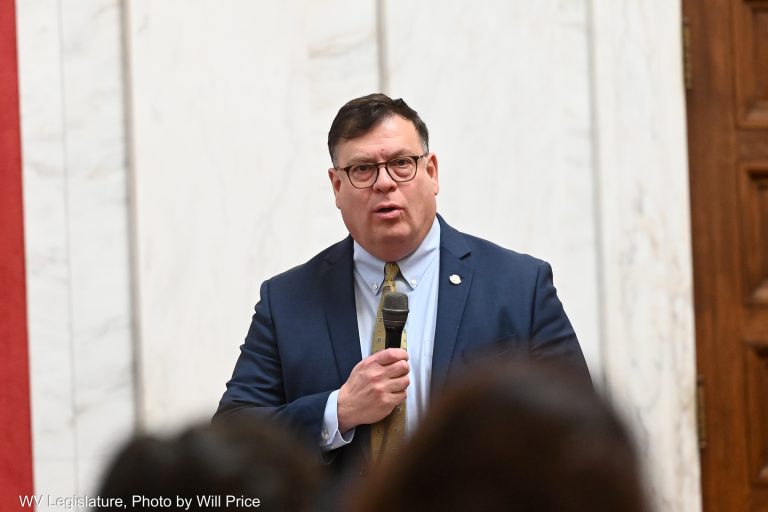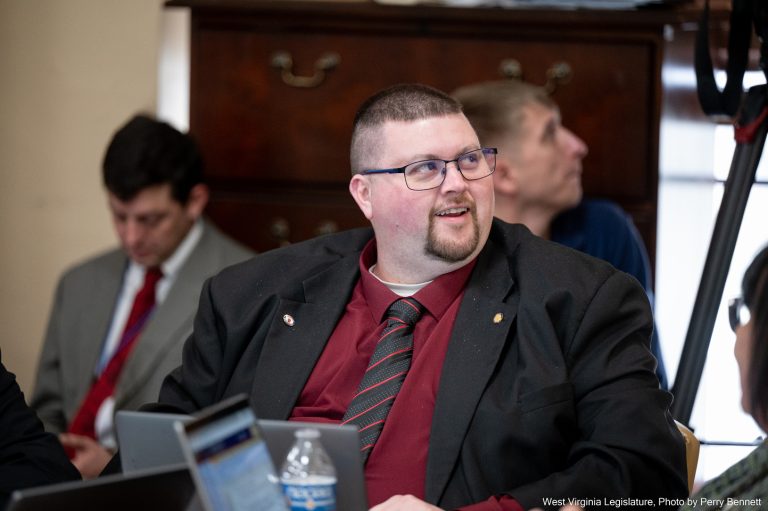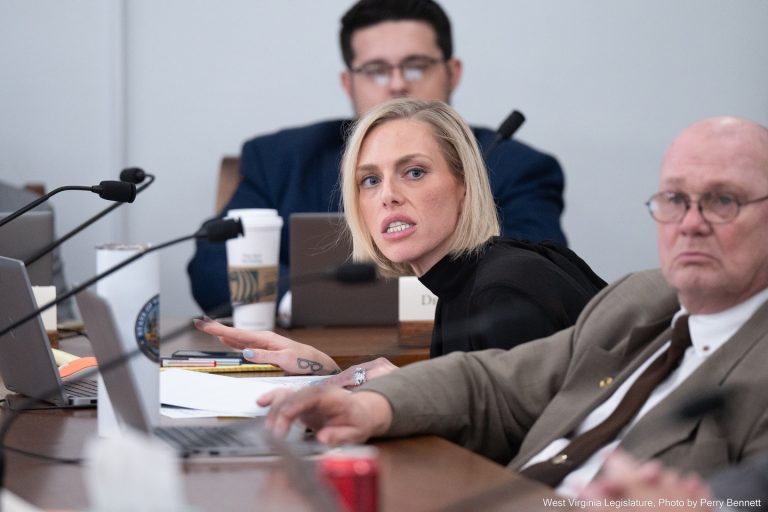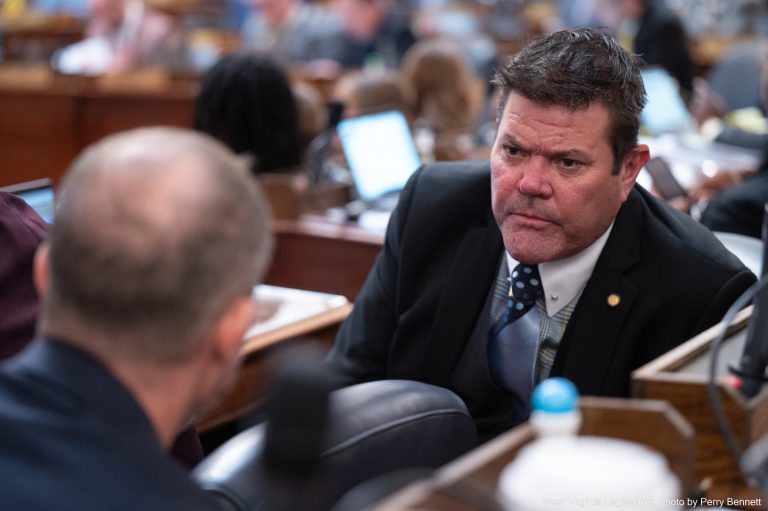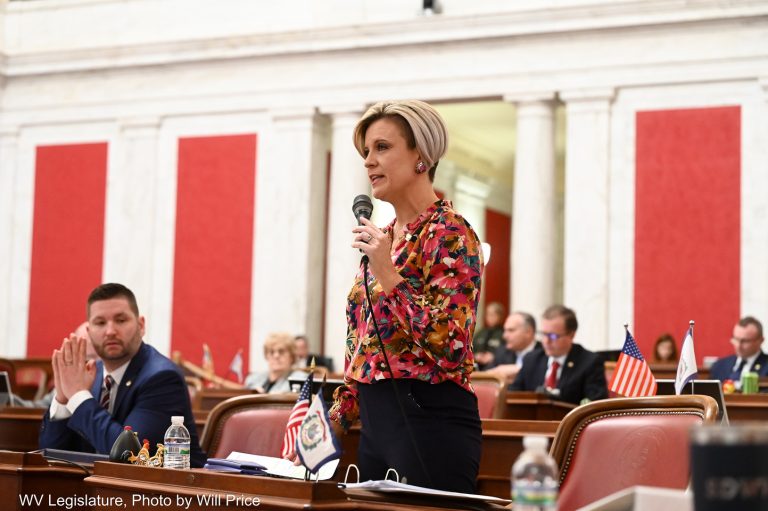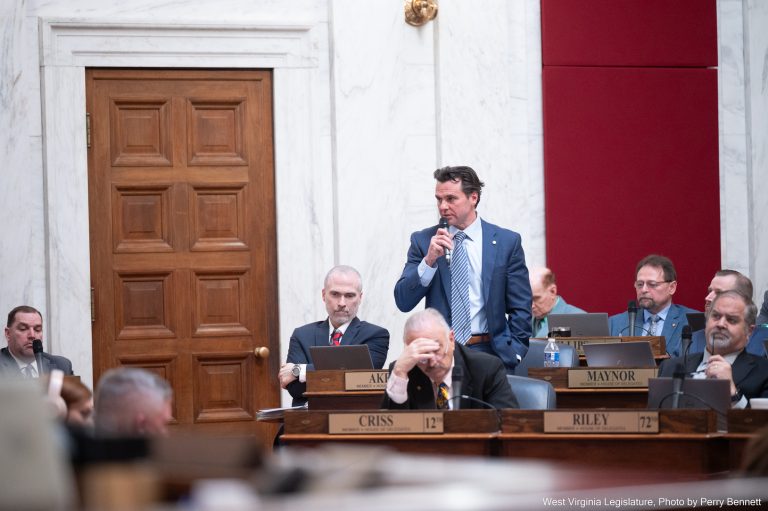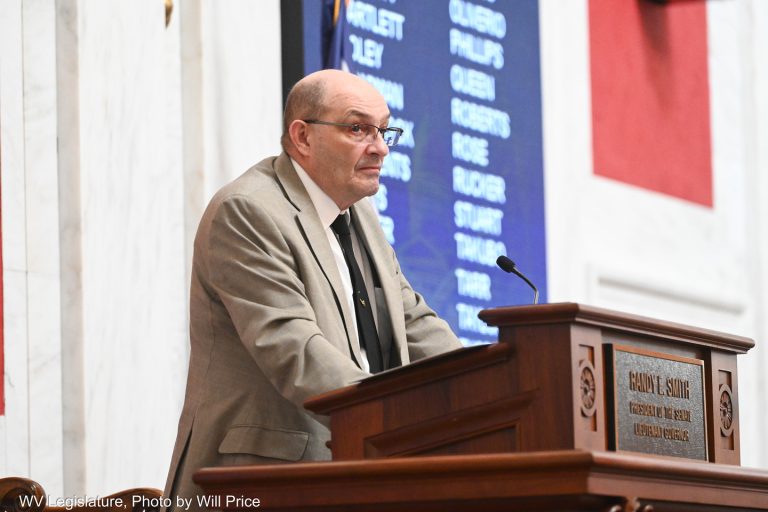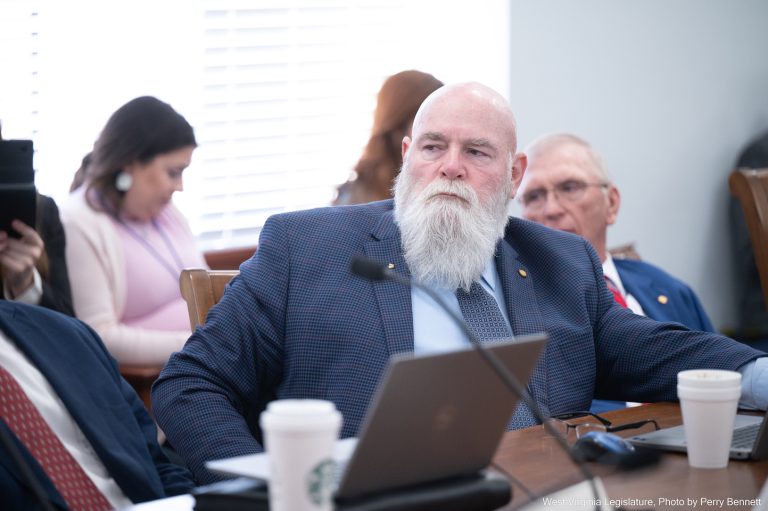In today’s House floor session, Senate Bill 456 was completed and seven other bills passed.
Senate Bill 456 defines “male,” “female,” and “biological sex” in the WV State Code. The bill was amended in the Senate to remove a House amendment. The Senate Amendment does not allow for an examination of a minor to determine biological sex. The biological sex is determined by the sex listed on the birth certificate.
Senate Bill 138 enhances the penalties for fleeing an officer the second or subsequent time. The bill also DUI fleeing will be an enhanced penalty.
House Bill 2008 reorganizes the executive branch by moving the Department of Economic Development under the Department of Commerce as a division beginning July 1, 2025. Individuals who are in classified service positions will maintain that status unless they change jobs within the agency, then they will be in the classified exempt service system. New hires are in will be in the classified exempt service system. The bill was amended to include the Division of Natural Resources to Homeland Security.
House Bill 2009 reorganizes the executive branch by moving the Department of Arts, Culture, and History under the Department of Tourism as a division beginning July 1, 2025. Individuals who are in classified service positions will maintain that status unless they change jobs within the agency, then they will be in the classified exempt service system. New hires are in will be in the classified exempt service system.
House Bill 2190 removes the reference to a pilot program to allow Potomac State College to continue participation in the “Learn and Earn” Program for Community and Technical Colleges.
House Bill 2382 bans camping on public property and illegal camping in camping areas. The first offense will receive a written warning and information on resources available. A second offense will lead to a fine of up to $200. For a third offense in 12 months, the person can be fined up to $500 and/or 30 days in jail.
House Bill 2411 requires students to complete one full credit of computer science to graduate high school.
House Bill 2634 doubles the penalty for anyone found guilty of sexual assault in the third degree and sexual abuse of a child. For sexual assault in the third degree, the penalty would be 2 to 10 years imprisonment and a fine of $20,000. For sexual abuse, the penalty shall be imprisonment for 20 to 40 years and a fine of $1,000 to $10,000. For sexual abuse of a child under 16, the penalty would be imprisonment for 10 to 30 years and $2,000 to $20,000. The bill also doubles the penalty of a person of trust not reporting the abuse from 2 years imprisonment and a fine of $400-$4,000 to 4 years imprisonment and a fine of $800-$8,000.
Bills introduced today can be found here.
Resolutions introduced today can be found here.
The House is adjourned until 11 a.m. tomorrow, March 12, 2025.
Committee Meetings, Today March 11
- The Subcommittee on Homeland Security will meet immediately after the floor in Room 410.
- The Subcommittee on Banking and Insurance will meet immediately after floor in Room 460.
- The Committee on Government Organization will meet at 1:40 p.m. in Room 215E.
- The Subcommittee on Public Education will meet at 1:45 p.m. in Room 432M.
- The Subcommittee on Educational Choice will meet at 2:25 p.m. in Room 432M.
- The Subcommittee on Local Governments will meet at 2 p.m. in Room 215E.
- The Subcommittee on Investments will meet at 3 p.m. in Room 460.
- The Subcommittee on Higher Education will meet at 3:05 p.m. in Room 432M.
- The Subcommittee on Energy and Public Works will meet at 3:15 p.m. in Room 410.
- The Committee on Health and Human Resources will meet at 4 p.m. in Room 215E.
- The Subcommittee on Energy and Manufacturing will meet at 4:15 p.m. in Room 410.
Committee Meetings, tomorrow March 12
- The Appropriations Subcommittee will meet at 9 a.m. in Room 460.
- The Judiciary Committee will meet at 9 a.m. in Room 410.
- The Subcommittee on Courts will meet at 9:30 a.m. in Room 410.
- The Subcommittee on Legal Services will meet at 9:45 a.m. in Room 410.
- The Subcommittee on Homeland Security will meet at 10 a.m. in Room 410.
- The Subcommittee on Agriculture, Commerce, and Tourism will meet at 1 p.m. in Room 215E.
- The Committee on Education will meet at 1 p.m. in Room 432M.
- The Subcommittee on Revenue will meet at 1 p.m. in Room 460
- The Subcommittee on Government Administration will meet at 2 p.m. in Room 215E
- The Subcommittee on Environment, Infrastructure, and Technology will meet at 3 p.m. in Room 410.
- The Subcommittee on Health Care Regulation will meet at 3 p.m. in Room 215E.



